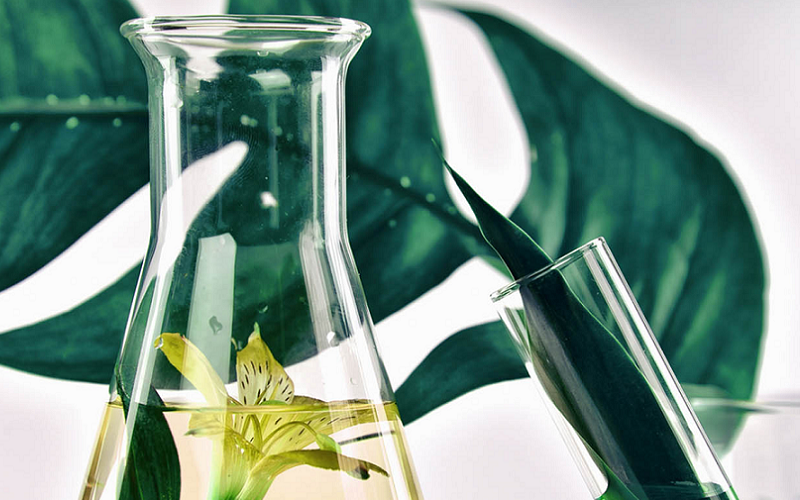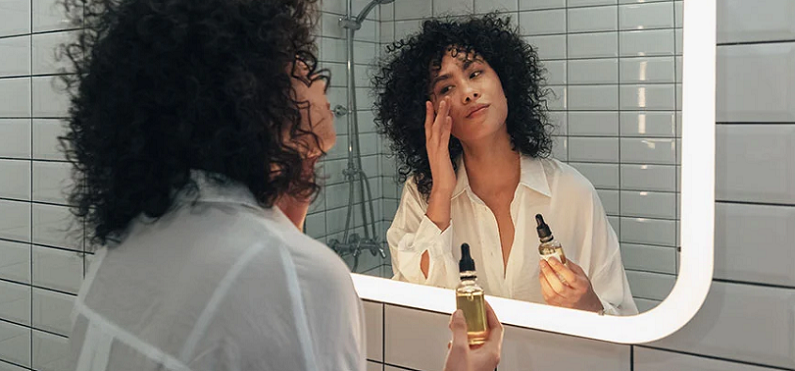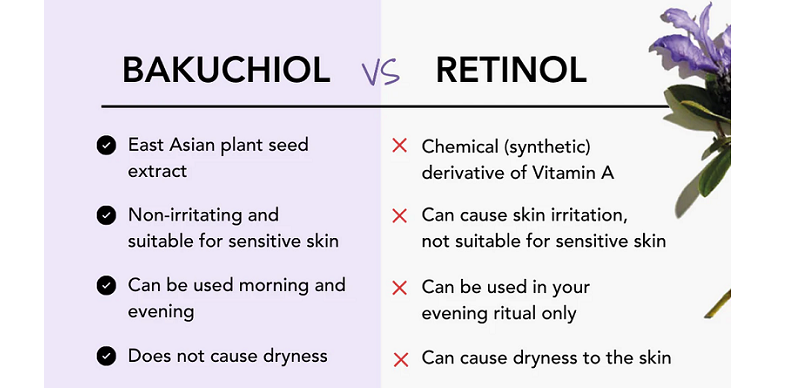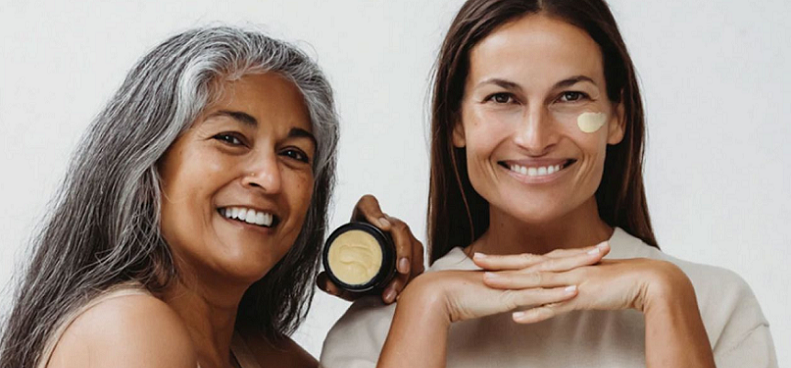
Bakuchiol is a natural alternative to the well-known skincare ingredient, Retinol. Retinol, a form of vitamin A, has long been hailed as a miracle worker in the skincare industry, renowned for its anti-aging and acne-fighting properties. However, it’s not without its drawbacks, including potential irritation and sensitivity for some users. Enter Bakuchiol, a plant-based ingredient that promises similar benefits to retinol, but with a gentler touch.
Contents
Introduction to Bakuchiol as a Retinol Replacement
In the ever-evolving world of skincare, it’s easy to get lost in the myriad of ingredients and products that promise to deliver the best results. One ingredient that has stood the test of time is Retinol, a derivative of vitamin A, known for its potent anti-aging and acne-fighting properties.
However, for some, Retinol can be a bit too harsh, leading to skin irritation and sensitivity. This has led to the search for alternatives that can offer similar benefits but with a gentler approach. One such promising ingredient is Bakuchiol, a natural compound that has been creating quite a buzz in the skincare community.
Introduction to Retinol and Its Common Uses
Retinol, a form of vitamin A, is a skincare superstar that has been used for decades due to its proven effectiveness in combating signs of aging and acne. It works by accelerating cell turnover, promoting the production of collagen, and preventing the breakdown of existing collagen. This results in smoother, firmer skin with reduced fine lines, wrinkles, and acne. However, its potency can also lead to skin irritation, dryness, and increased sensitivity to the sun, especially for those with sensitive skin or when used in high concentrations.
Introduction to Bakuchiol as a Natural Alternative
Bakuchiol, pronounced buh-koo-chee-all, is a plant-based ingredient that has been used in traditional Ayurvedic and Chinese medicine for centuries. It is derived from the seeds and leaves of the Psoralea Corylifolia plant, also known as the “Bakuchi” plant. Recently, it has gained attention in the skincare industry as a natural alternative to Retinol, offering similar benefits but without the associated side effects. This makes it an attractive option for those who find Retinol too harsh for their skin or prefer to use natural skincare products.

Understanding Retinol
Before we get into the benefits of Bakuchiol, it’s important to understand why Retinol has been the gold standard in skincare for so long. This will help us better appreciate the potential of Bakuchiol as a natural alternative.
What is Retinol?
Retinol is a derivative of vitamin A, one of the body’s key nutrients for boosting cell health. It’s often found in over-the-counter skincare products, while stronger versions, like Retin-A, are available by prescription. Retinol’s primary function is to promote skin renewal and enhance collagen production, which slows down as we age. It also helps in treating acne, reducing the appearance of fine lines, and improving skin tone and texture [1].
The Benefits of Retinol for Skin Health
Retinol has been a staple in skincare due to its multiple benefits. It’s known for its powerful anti-aging properties, as it can help reduce visible signs of aging such as fine lines and wrinkles. It does this by boosting the production of collagen, a protein that gives our skin its elasticity and firmness.
In addition to its anti-aging benefits, Retinol is also effective in treating acne. It helps to unclog pores, reducing the likelihood of breakouts. Moreover, by promoting cell turnover, it aids in the faster healing of existing acne and reduces post-acne marks.
Common Side Effects and Concerns with Retinol Use
Despite its numerous benefits, Retinol is not without its drawbacks. It can cause skin irritation, including dryness, redness, and peeling, especially when you first start using it or if you use too much at once. This is why it’s often recommended to start with a lower concentration and gradually increase it as your skin builds tolerance.
Retinol can also make your skin more sensitive to the sun, increasing the risk of sunburn. Therefore, it’s crucial to use sun protection when using products containing Retinol.
Lastly, Retinol is not recommended for use during pregnancy or breastfeeding due to potential risks. This has led many people to seek out safer, natural alternatives that can offer similar benefits, one of which is Bakuchiol.

Introduction to Bakuchiol
As we’ve seen, while Retinol offers numerous benefits for skin health, it also comes with potential side effects that can be a cause for concern for some users. This has led to the rise of natural alternatives, one of the most promising of which is Bakuchiol.
What is Bakuchiol?
Bakuchiol is a plant-based, natural compound that has been gaining popularity in the skincare industry as a potential alternative to Retinol. It’s derived from the seeds and leaves of the Psoralea Corylifolia plant, also known as the “Bakuchi” plant. Like Retinol, Bakuchiol has been shown to have anti-aging and anti-acne properties, but without the associated side effects of Retinol [2].
Origin and Traditional Uses of Bakuchiol
Bakuchiol has a rich history in traditional medicine. It has been used for centuries in Ayurvedic and Chinese medicine for its healing properties. The Psoralea Corylifolia plant, from which Bakuchiol is derived, is native to India and other parts of Asia. Traditionally, it has been used to treat a variety of conditions, including skin diseases, infections, and inflammation.
How Bakuchiol is Extracted and Processed
The extraction of Bakuchiol involves a process of steam distillation of the seeds and leaves of the Psoralea Corylifolia plant. This process ensures that the beneficial properties of the plant are retained in the extracted compound. Once extracted, Bakuchiol can be incorporated into various skincare products, including serums, creams, and oils. It’s important to note that the concentration of Bakuchiol can vary among products, so it’s advisable to check the product label for this information.

Comparing Bakuchiol and Retinol
Now that we have a good understanding of both Retinol and Bakuchiol, it’s time to compare these two skincare ingredients. While they share some similarities, there are also key differences that make Bakuchiol a compelling alternative for those who find Retinol too harsh or are looking for a natural skincare solution.
Similarities Between Bakuchiol and Retinol
At a glance, Bakuchiol and Retinol share some striking similarities. Both have been shown to have potent anti-aging properties, helping to reduce the appearance of fine lines and wrinkles by boosting collagen production. They also both have anti-acne properties, helping to unclog pores and promote faster healing of existing acne.
Moreover, both Bakuchiol and Retinol can improve skin texture and tone, leading to smoother, more radiant skin. They do this by promoting cell turnover, helping to shed dead skin cells and reveal healthier, younger-looking skin underneath [3].
Differences Between Bakuchiol and Retinol
While Bakuchiol and Retinol share some benefits, they also have key differences. The most significant difference lies in their side effects. While Retinol is known for causing skin irritation, including dryness, redness, and peeling, Bakuchiol is generally well-tolerated and does not cause these side effects. This makes Bakuchiol a more suitable option for those with sensitive skin or those who have had negative reactions to Retinol in the past.
Another key difference is that Bakuchiol is a natural, plant-based ingredient, while Retinol is a synthetic derivative of vitamin A. This makes Bakuchiol a great choice for those who prefer to use natural skincare products.
Finally, while Retinol can make your skin more sensitive to the sun, Bakuchiol does not have this effect. This means you can use Bakuchiol in the morning as well as at night, unlike Retinol, which is typically recommended for nighttime use only due to its photosensitizing effect.
The Benefits of Bakuchiol
Having explored the similarities and differences between Bakuchiol and Retinol, let’s delve deeper into the specific benefits of Bakuchiol. This natural ingredient offers a range of benefits for various skin concerns, from anti-aging to acne treatment, making it a versatile addition to any skincare routine.
Bakuchiol for Anti-Aging
One of the most celebrated benefits of Bakuchiol is its anti-aging properties. Like Retinol, Bakuchiol helps to stimulate collagen production, which can reduce the appearance of fine lines and wrinkles and improve skin elasticity. This can lead to firmer, more youthful-looking skin over time. Moreover, Bakuchiol is gentle on the skin, making it a suitable anti-aging solution for those with sensitive skin [4].
Bakuchiol for Acne Treatment
Bakuchiol also has anti-acne properties. It helps to regulate sebum production, which can reduce the likelihood of breakouts. Additionally, its anti-inflammatory properties can help to soothe existing acne, reducing redness and inflammation. This makes Bakuchiol a promising ingredient for those struggling with acne-prone skin [5].
Bakuchiol for Hyperpigmentation
Hyperpigmentation, characterized by dark spots or uneven skin tone, is a common skin concern. Bakuchiol has been shown to help reduce hyperpigmentation by inhibiting the production of melanin, the pigment responsible for the color of our skin. This can lead to a more even skin tone with regular use [6].
Bakuchiol for Sensitive Skin
Perhaps one of the most appealing benefits of Bakuchiol is its suitability for sensitive skin. Unlike Retinol, which can cause skin irritation and sensitivity, Bakuchiol is generally well-tolerated, even by those with sensitive skin. This means that individuals who have had to avoid Retinol due to its potential side effects can now enjoy similar benefits with Bakuchiol.
References
[1] This Natural Alternative to Retinol Is Actually Better Than the Real Thing
[2] What is bakuchiol? Experts explain the skin care benefits of the retinol alternative
[3] This gentle retinol alternative has over 115 million TikTok views — and it’s derm-approved
[4] Bakuchiol Is The Anti-Aging Retinol Replacement Dermatologists Want You To
[5] Bakuchiol: Does it make skin look younger?
[6] Bakuchiol: a retinol-like functional compound revealed by gene expression profiling and clinically proven to have anti-aging effects
